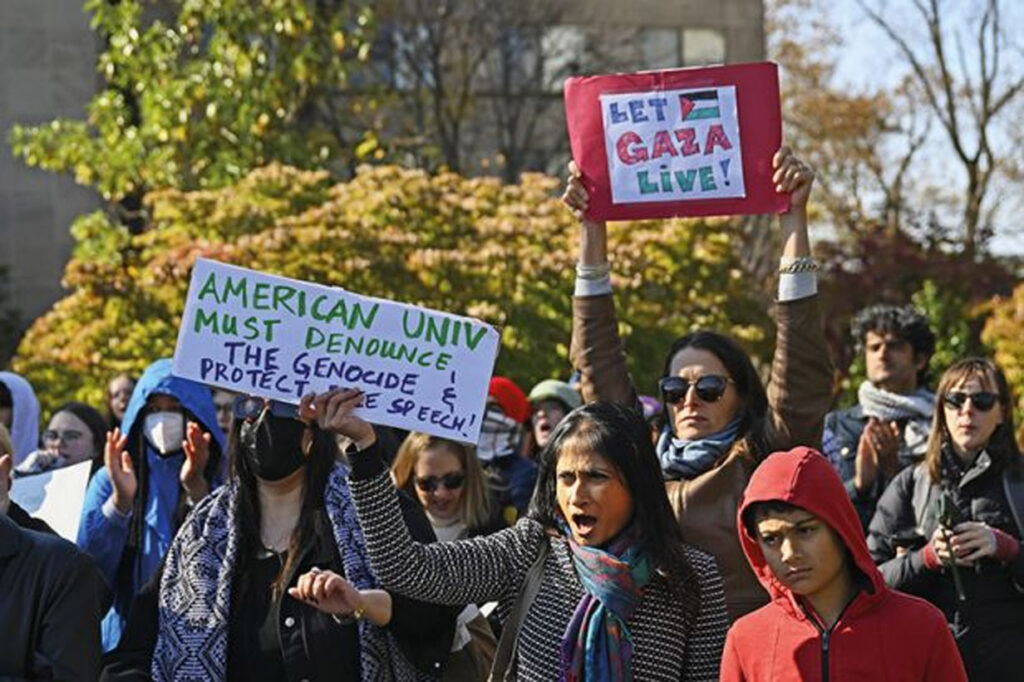In a decision that has ignited intense debate about free speech on college campuses, Brandeis University has taken the unprecedented step of derecognizing a Pro-Palestinian student organization, sparking widespread concern among free speech advocates. This action by the university’s president, Ronald Liebowitz, comes a month after a surprise attack by Hamas on Israel, marking a first in the history of American private universities.
In a forceful editorial published in the Boston Globe, President Liebowitz clarified the university’s stance. “In this critical moment, as some members of our community use their freedom to express repugnant views about Jews, Jewish life, and the Jewish state, we at Brandeis must champion free speech as it’s rightly understood. While universities are not able to eliminate hate speech, they certainly shouldn’t fund it,” Liebowitz wrote. He emphasized that any group affiliated with Brandeis that propagates hate would lose its recognition and privileges. This strong position followed the announcement of a vigil by Students for Justice in Palestine (SJP) to mourn “martyrs in Gaza,” which had sparked controversy on campus.
The revocation of SJP’s university recognition has elicited a spectrum of reactions. Some Jewish students at Brandeis, like sophomore Noah Levy, lauded the decision. “I have never felt prouder to be part of Brandeis. President Liebowitz’s bold steps are unparalleled in the realm of university leadership,” Levy said.
Conversely, renowned free speech expert Harvey Silverglate criticized the university’s decision as a misstep. Silverglate, an attorney and co-founder of the Foundation for Individual Rights and Expression, argued for the apolitical nature of universities. “Universities should be bastions of diverse political discourse and peaceful exchange of ideas,” Silverglate told WBZ. He added, referencing the school’s namesake, “Justice Brandeis, a seminal advocate of free speech and thought in the U.S. Supreme Court, would be disheartened by this decision.”
Silverglate also raised legal concerns, noting that Brandeis’s acceptance of substantial federal funds could potentially bring the issue into the realm of First Amendment violations. “The university’s role isn’t to silence one side to maintain peace, but to ensure a platform for free expression,” he said.
This controversy at Brandeis mirrors a similar situation at Columbia University, where two campus Palestine groups, SJP and Jewish Voice for Peace (JVP), were suspended. These actions have been condemned by civil rights advocates as suppressive measures that undermine students’ efforts to engage in peaceful protest and dialogue about the Israeli-Palestinian conflict.
“These universities’ decisions represent a troubling trend in stifling student activism and free speech,” said a civil rights attorney in response to Columbia’s suspensions. “Censoring students for their peaceful expression of political views is not only unconstitutional but also antithetical to the very mission of higher education.”
The actions of Brandeis and Columbia Universities have intensified this debate, highlighting the delicate balance that educational institutions must strike between upholding free expression and navigating the complexities of politically charged issues like the Israeli-Palestinian conflict.
The Constitution of the United States does not talk about “hate speech.” And while we believe that much of what is being said is reprehensible, our opinions are not important and hold no weight in the light of the vastly greater realm of Constitutional rights.
To have people in authority, such as the president of Brandeis University attack a group for its speech is the real crime. Because if he can do it, others can to. And perhaps next time, it will be someone who finds your own words to be “hate speech.”
